Last month, Danny Ocean released a new EP entitled venequia. Taking its name from a slang term for what Venezuela became after the effects of populist president Hugo Chávez’s government, Ocean’s project deals head-on with Venezuela’s reality. Here, the lovelorn popetón tracks and ballads that made Ocean one of his country’s most prominent musicians are sung here to Venezuela itself.
The cover features a small section of Venezuelan artist Carlos Cruz-Diez’s “Cromointerferencia de color aditivo”, an iconic installation that lines the walls and floors of Maiquetía “Simon Bolívar” International Airport. Eight million Venezuelans have migrated en masse — some risking their lives and leaving on foot across South, Central, and North America — since 2005 due to the country’s deteriorating condition. Many who left, not knowing when they would return, would take tiles of the artwork. Cruz-Diez’s work remains chipped in places to this day, a brokenness Ocean wanted to highlight.
On July 28, 10 days after venequia. came out, Venezuela held elections. After a campaign where viable candidates, including opposition leader María Corina Machado, were barred from running by incumbent President Nicolás Maduro’s administration, Maduro claimed a contentious victory against diplomat Edmundo González. Maduro’s government has yet to release official electoral records that prove the result. Nationwide protests and violent repression ensued. As of press time, over 2000 people have been detained with no information on their whereabouts for opposing the results. Some protestors were taken straight out of their homes by way of Maduro’s infamous “Operación Tun Tun.” Others have been detained at the airport (such as queer activist Yendri Velásquez), or gunned down by the country’s armed forces and pro-government gangs called “colectivos.” As international pressure to release the results mounts, Maduro signed a decree blocking X and other forms of social media outside for ten days. The incumbent regime also legalized the arrest of people opposing Maduro’s alleged victory publicly on social media or privately on texting platforms such as Whatsapp.
venequia. is an album that attempts to sing to Venezuela’s broken present while invoking hope for a future return. Songs like the euphoric romance “Dime Tú” (“Tell Me”) imagine a free Venezuela. Dembow-driven “Escala En Panamá”, a reference to one of the layover destinations to get to Venezuela from abroad, tells the story of a chance meeting at the airport and a promise to find one another — as Ocean sings — in “Caracas en diciembre, maybe?” The video sees a mass crowd rushing to get on a single plane after confronting a line of police blocking the boarding zone with shields.
“I don’t appear in the video because I’m not the protagonist of this struggle: it’s the Venezuelan people,” Ocean tells Rolling Stone over Zoom. “Those of us outside the country right now want nothing more than to be able to return peacefully and that’s what the song is about: the loves left hanging until December. That’s a time of year we should be with our families, and it can be painful especially for Venezuelans. I wanted to create an image of what that moment might feel like, that moment when we all return.”
Rolling Stone spoke to Ocean over Zoom about venequia., the dire situation in Venezuela post-election, and his hope for this critical moment.
You’ve been active on socials talking about the situation in Venezuela since the election. How are you holding up, on a personal level?
A ton of anxiety and uncertainty. I’ve been trying my best to add to María Corina’s message, but it’s a moment where [those of us outside of Venezuela] don’t know a lot of what’s actually happening. It’s difficult, because you don’t want to step on the toes of her message. I feel so [powerless], but I also feel more firm than ever. I have a lot of hope, and a lot of faith in what she’s doing, and in the protestors.
I feel that. It’s a heavy time, especially after so many years of processing the situation there and how many of us have left. venequia. speaks very directly to this moment, but you released it right before the election. I’m wondering if the album’s meaning has changed for you since then.
I wouldn’t say it has. Each song has its own story. “Por La Pequeña Venecia,” for one, is me telling those in power that we want peace, that we want change. Venezuelans deserve change, and deserve better than what they’ve had these past 25 years. It’s an album that speaks to our people’s exodus.
That song in particular really struck me. There’s a lyric where you speak directly to the regime: “I’ll trade you justice for peace.” I think it’s such a testament to the exhaustion and desperation we felt for so long, though I feel the conversation has changed to justice being the only thing that might bring peace.
It’s hard for me now to reconcile that lyric seeing the sheer amount of violence. When I wrote that song, it was me telling the government to simply go —you already took everything, so take it and leave us in peace. Make a peaceful transition happen, let the people thrive without you. It’s a hard lyric to stand by now, but it’s a song that more than anything reflects our situation. There’s this other stanza where I talk about the things I lost: “My friends / My family / What else is left … I had seven stars, and you took eight.” They took more than what we had to begin with. It was a song where I wanted to express that feeling that’s so common in us Venezuelans abroad and the way we’ve been thinking through this situation.
The cover really affected me, too: the broken floor at Maiquetía Airport.
It’s a huge symbol of farewells. It’s also a symbol of arrivals, but it’s still broken. It’s like seeing the flag upside down… and the colors. I see them and the black is mourning. It’s the struggle we continue to go through. There’s a lot in that image. I made venequia. to make our pain visible to the world, so they could know what almost 8 million Venezuelans abroad are going through. It’s a situation that has broken a lot of families, and the region isn’t prepared for another mass exodus. Venezuela is one of the countries in the world with the most refugees in other countries. It’s not something to be taken lightly. I wanted to amplify the pain we’re all living through in the EP.
When did you leave Venezuela?
I left in 2015.
What do you miss most?
Honestly, being able to be in my streets calmly. To just be in my country, with my people and my culture, with my family and friends. That’s what I miss the most: being able to enjoy a moment with my friends.
Was there a song on venequia. that was particularly difficult to write, or that its meaning changed for you since the election?
I guess “Por Siempre Y Para Siempre.” I wrote that song after leaving Venezuela recently. I went back last year, and had my equipment to make music but I couldn’t get myself to. I was observing everything, trying to digest my feelings. It was only a few months later I was able to write a song about what I felt about Venezuela, where I was begging her to not forget those of us who left. It was definitely the most complex one for me to write.
This March, I was able to go back for the first time in sixteen years. Since I was born, Venezuela never had a situation anywhere near normal, but for the first time in so long returning felt possible. There was even a lot of cultural movement happening. Artists like Karol G and Tokischa were playing shows in Caracas, and Venezuelan musicians like Devendra Banhart and Arca were playing hometown shows after years away. The aftermath of the election has destroyed that feeling for me and a lot of other Venezuelans in the diaspora.
I’ll be real — I’m so happy these musicians could go to Venezuela and bring joy to our people. The people deserve it, and they don’t deserve what they’re living through. I haven’t gone back to Venezuela as a performer because my biggest song [“Me Rehúso”] is about having to leave a love behind because you emigrated. It doesn’t feel fair to sing that song while my country is in the state it’s in. It looks beautiful from the outside, but the reality is that outside a certain sector of Caracas, Venezuelans are struggling to get food on the table. They don’t have electricity, they don’t have water. If the government was focused on trying to solve these problems, maybe there would be a chance of real hope, but nobody is actually trying to help people in tangible ways.
You can put make-up on the situation, but you can’t convince me or anyone that Venezuela is “fixed.” It bothers me deeply. All respect to the artists taking the time to bring joy to Venezuelans, but you can’t cover the sun with one finger. The fact is nobody really wants to stay and change things — and who can blame them? How many more Venezuelans have to leave? To this day there are Venezuelans crossing the Darién [Gap, a jungle that connects Colombia and Panamá]. The Venezuela so many of us remember and had the privilege to live in is no longer the reality.
What would be the way forward?
The government needs to accommodate themselves to what people want. I’m not a politician, and I don’t know how to solve these types of issues, but I know that the only way forward is for those in power to give way for change to happen in Venezuela and let people who actually want to find solutions to come in. What’s happening right now in the streets is so painful. It hurts that the only thing that I can do is try to raise their message up as we try to mount international pressure. I really do think it’s our role if we’re not in Venezuela right now to keep exposing the truth. I think that’s what María Corina is presenting us with: an opportunity to shine a light on the atrocities happening right now. I’m holding on to hope that there’s going to be a strategy and that things will actually change. After the election results were announced, I saw Venezuela more unified than ever. That gives me hope.
This interview was translated and edited for clarity.
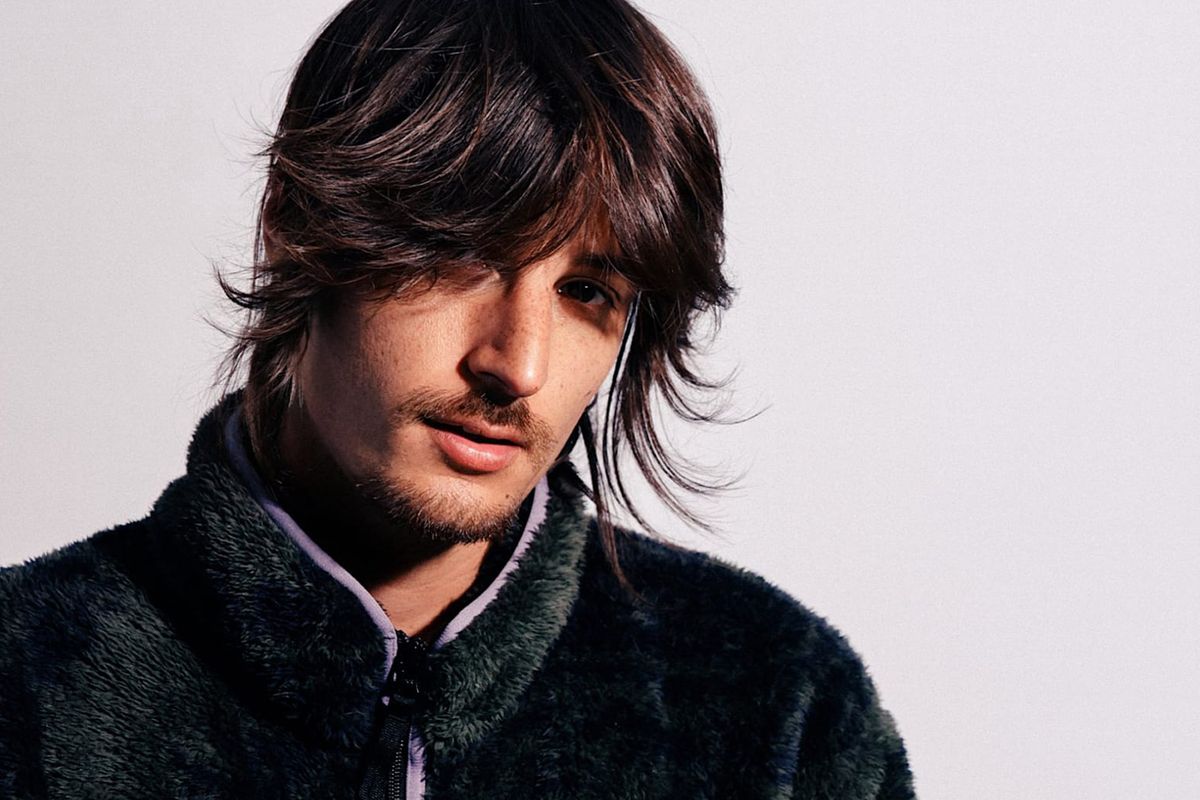





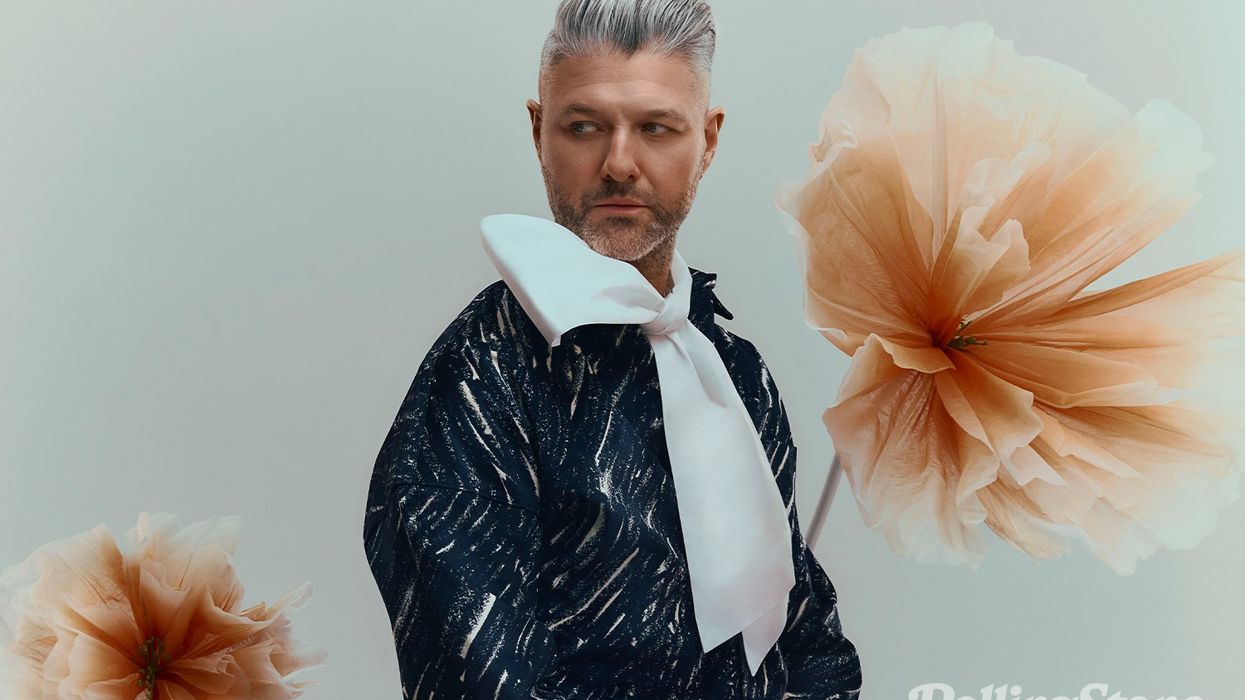
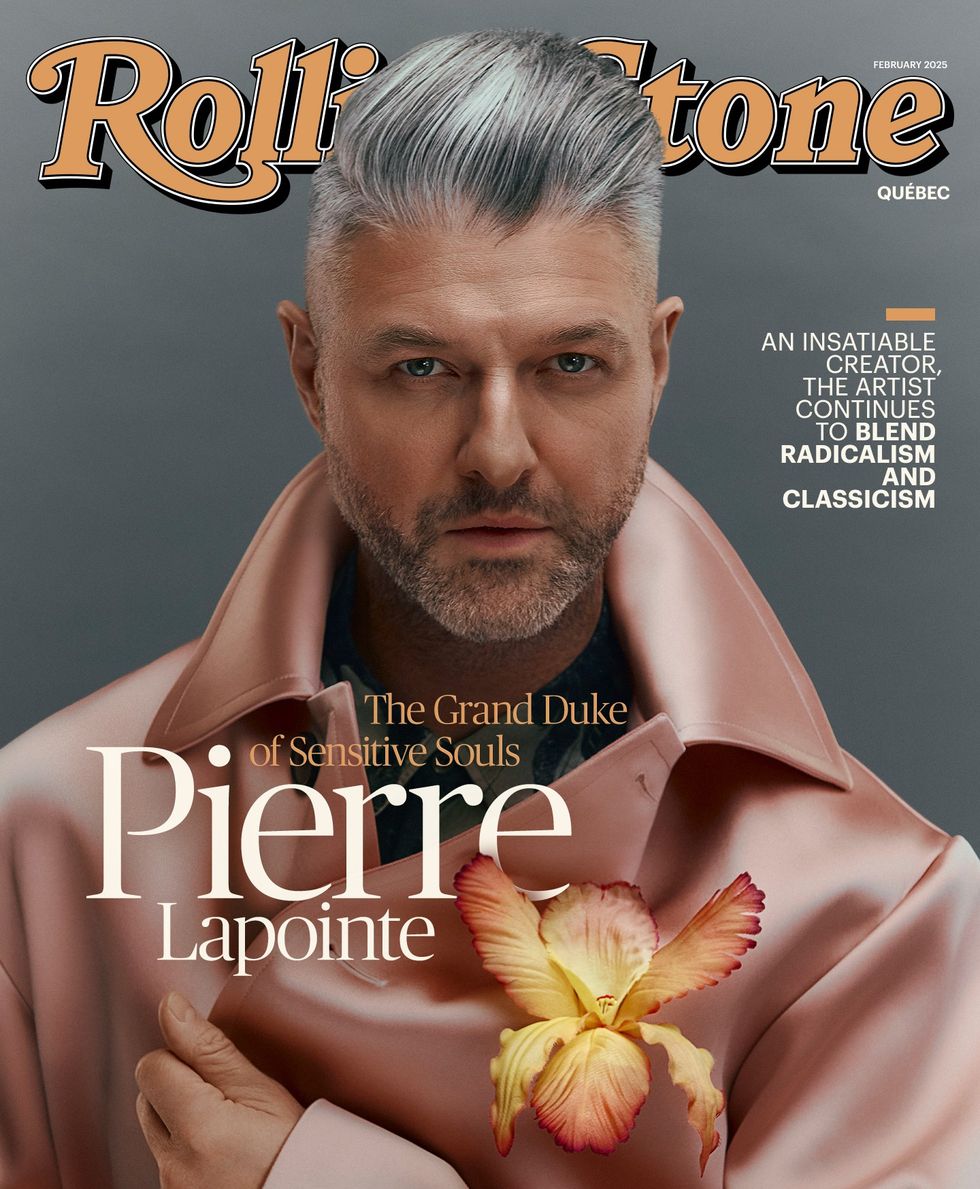 Coat (polyester and wool), shirt (silk), Dries Van Noten, SSENSE.com / Flower (silk), M&S Schmalberg
Coat (polyester and wool), shirt (silk), Dries Van Noten, SSENSE.com / Flower (silk), M&S Schmalberg
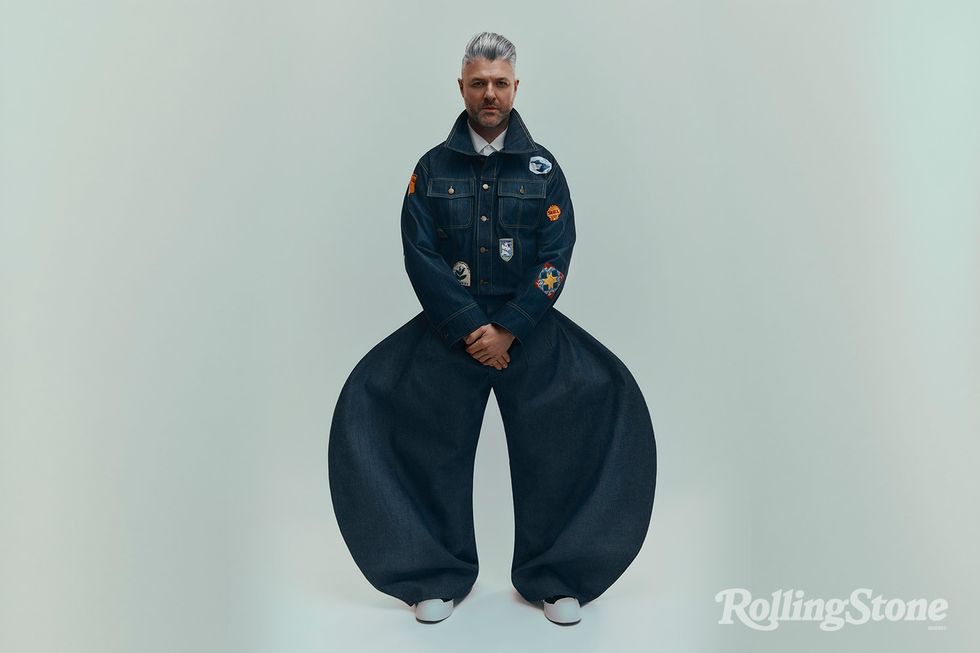 Blouson (denim and hand embroidered patches), WJ Crosson / Shit (polyester), Homme plissé Issey Miyake, Holt Renfrew/Pants from personal collection/ Shoes(canvas), Marni
Blouson (denim and hand embroidered patches), WJ Crosson / Shit (polyester), Homme plissé Issey Miyake, Holt Renfrew/Pants from personal collection/ Shoes(canvas), Marni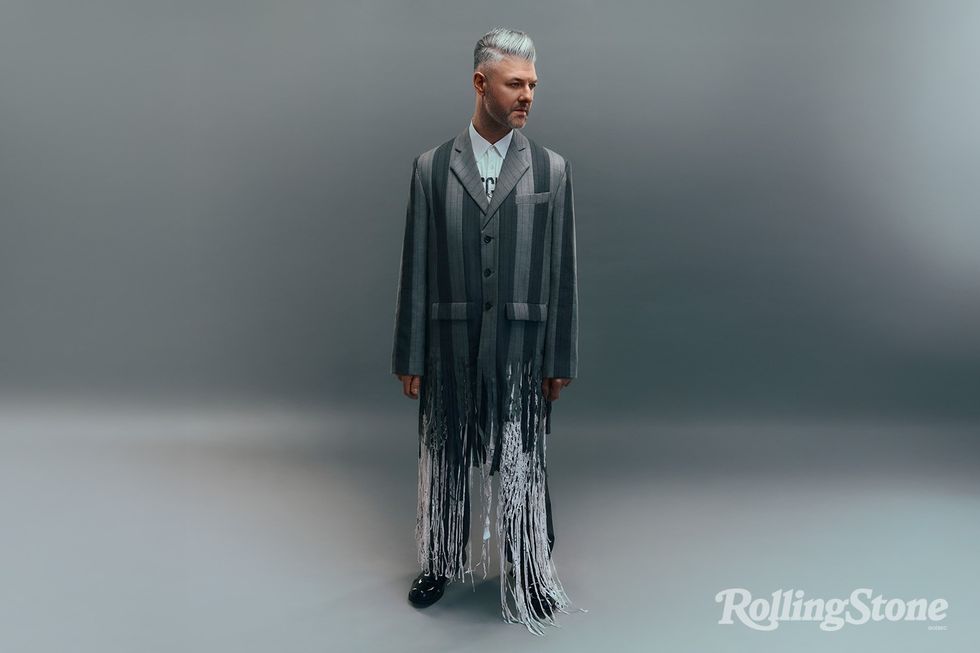 Jacket and pants (virgin wool), shirt (acrylic coated cotton), Moschino / Shoes from Pierre Lapointe's personal collection
Jacket and pants (virgin wool), shirt (acrylic coated cotton), Moschino / Shoes from Pierre Lapointe's personal collection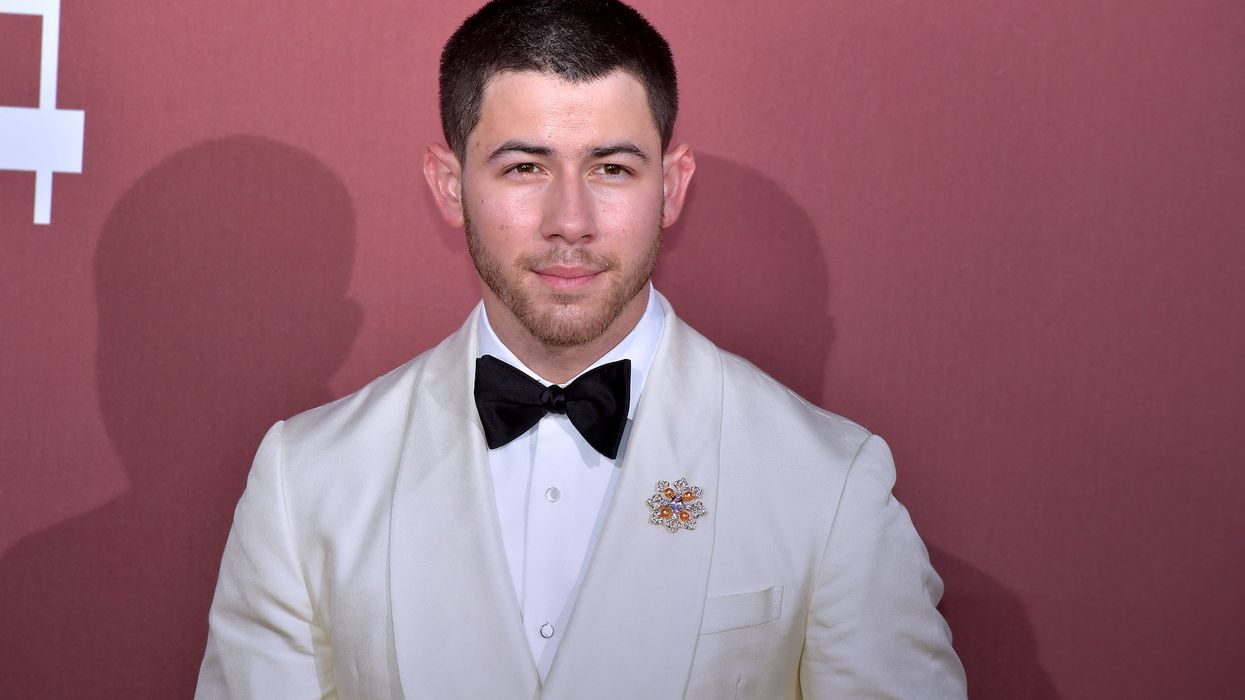
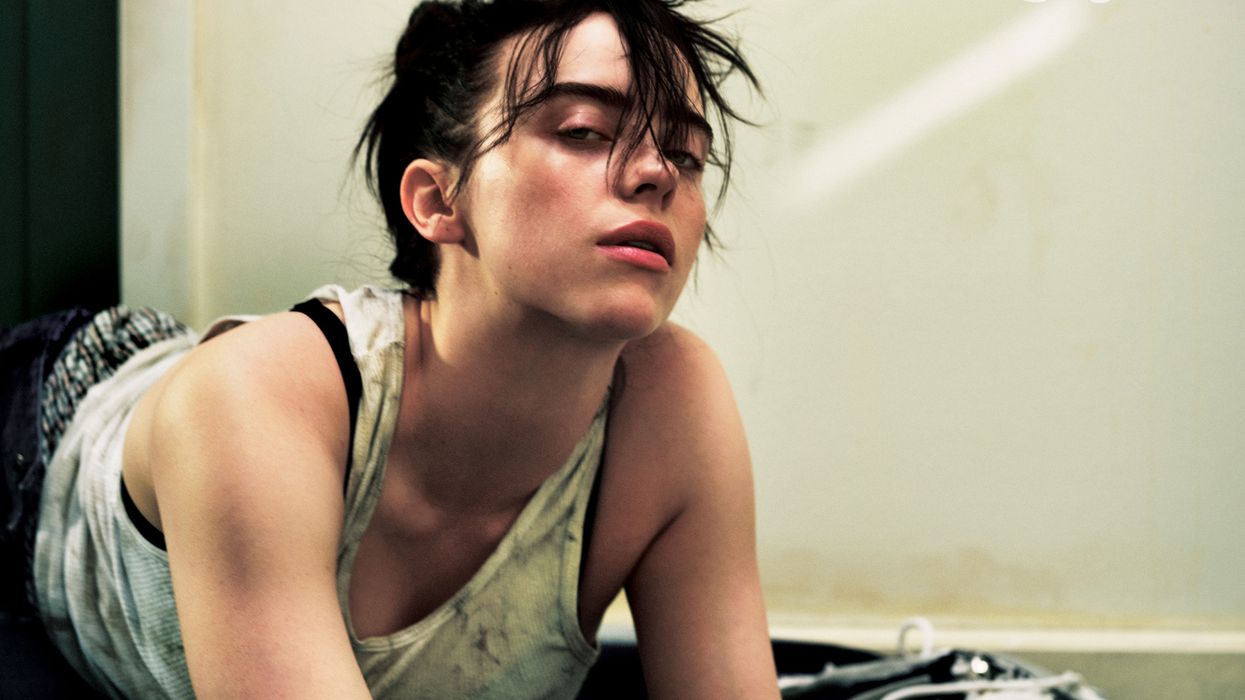
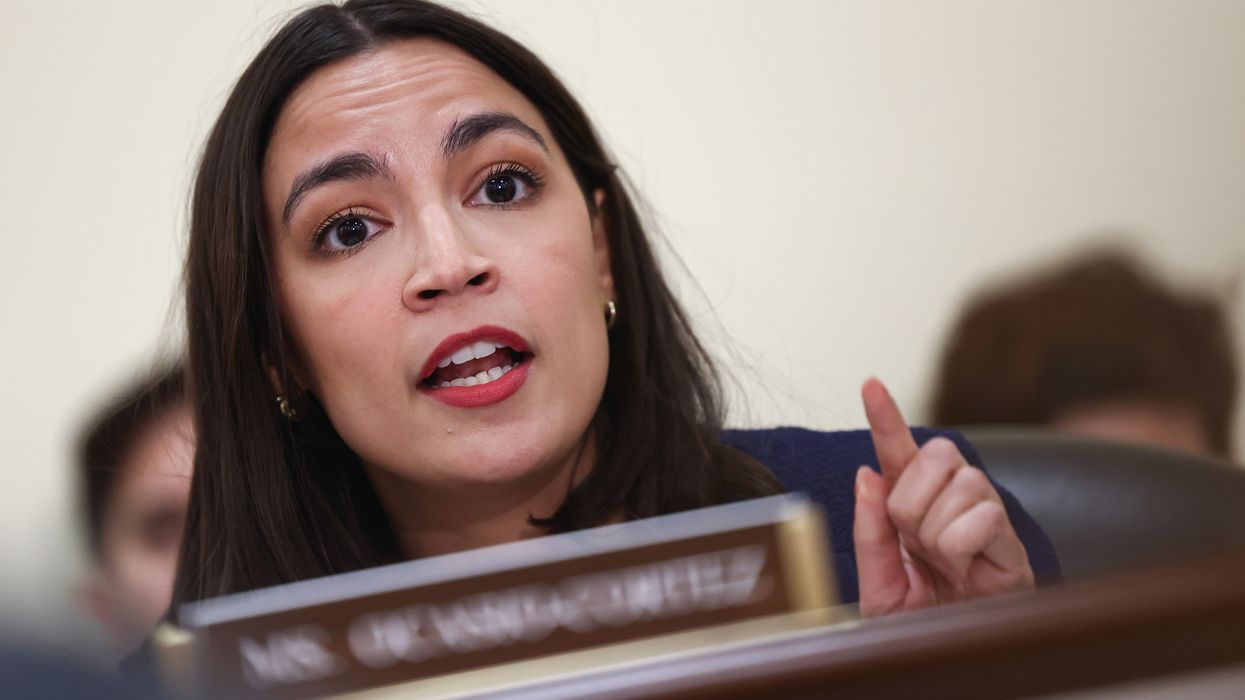
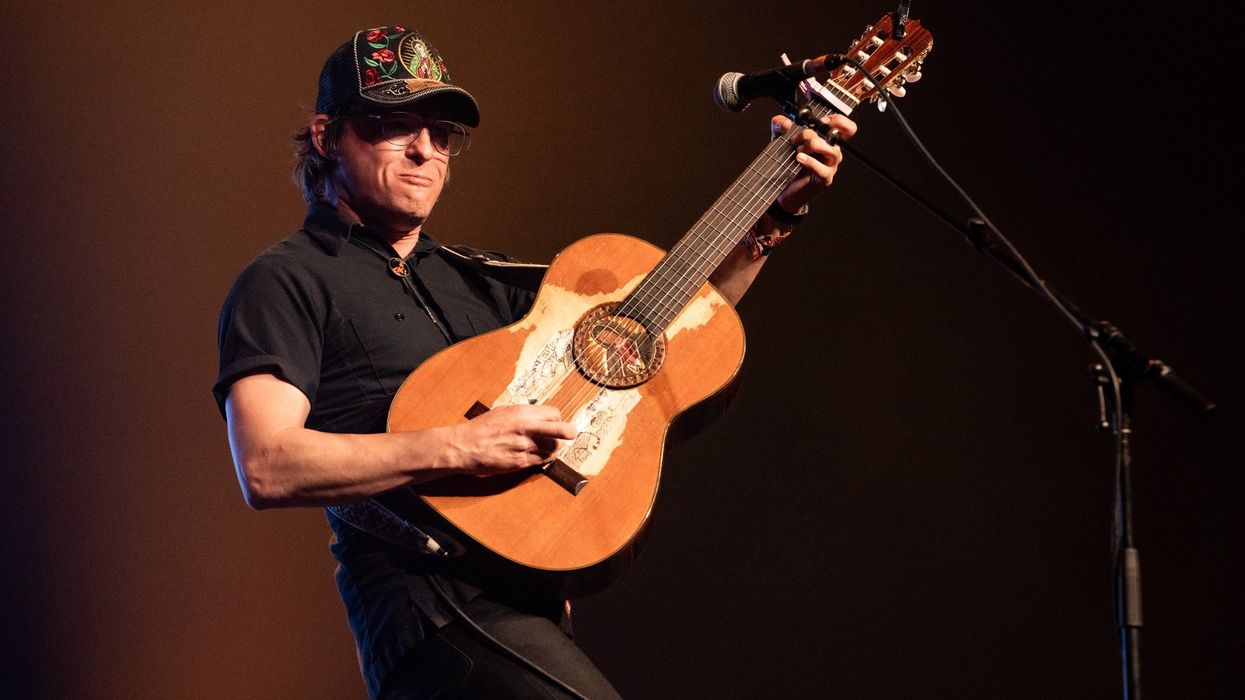
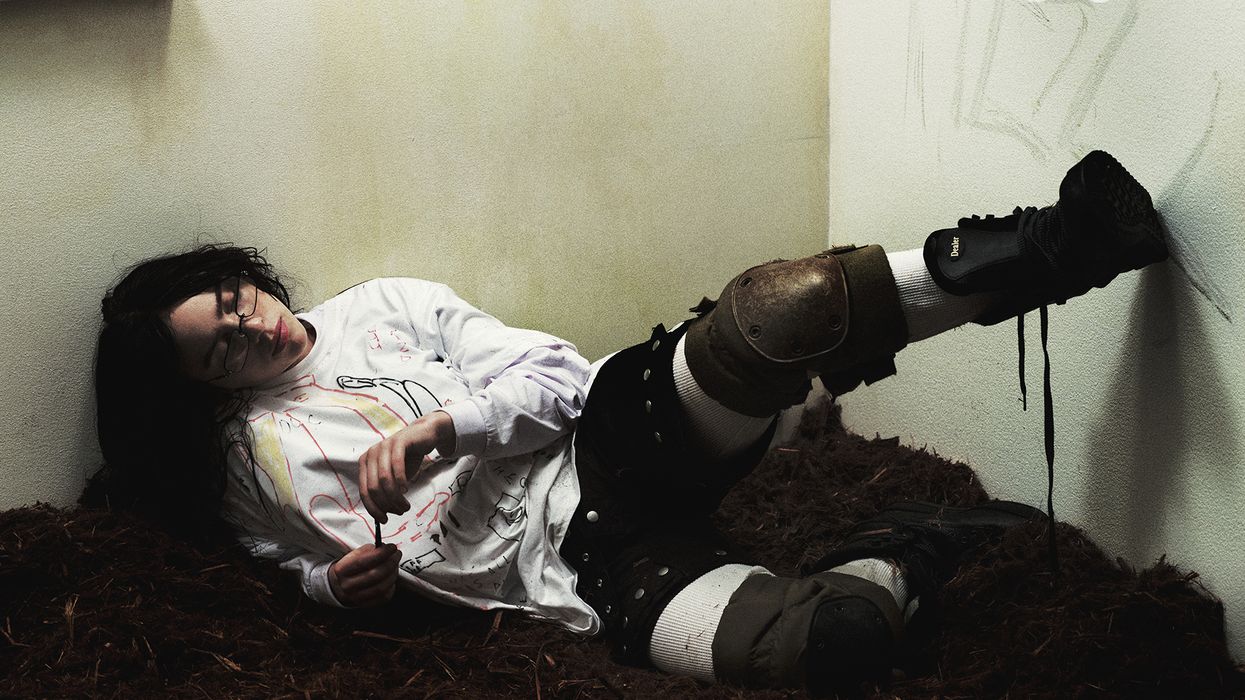
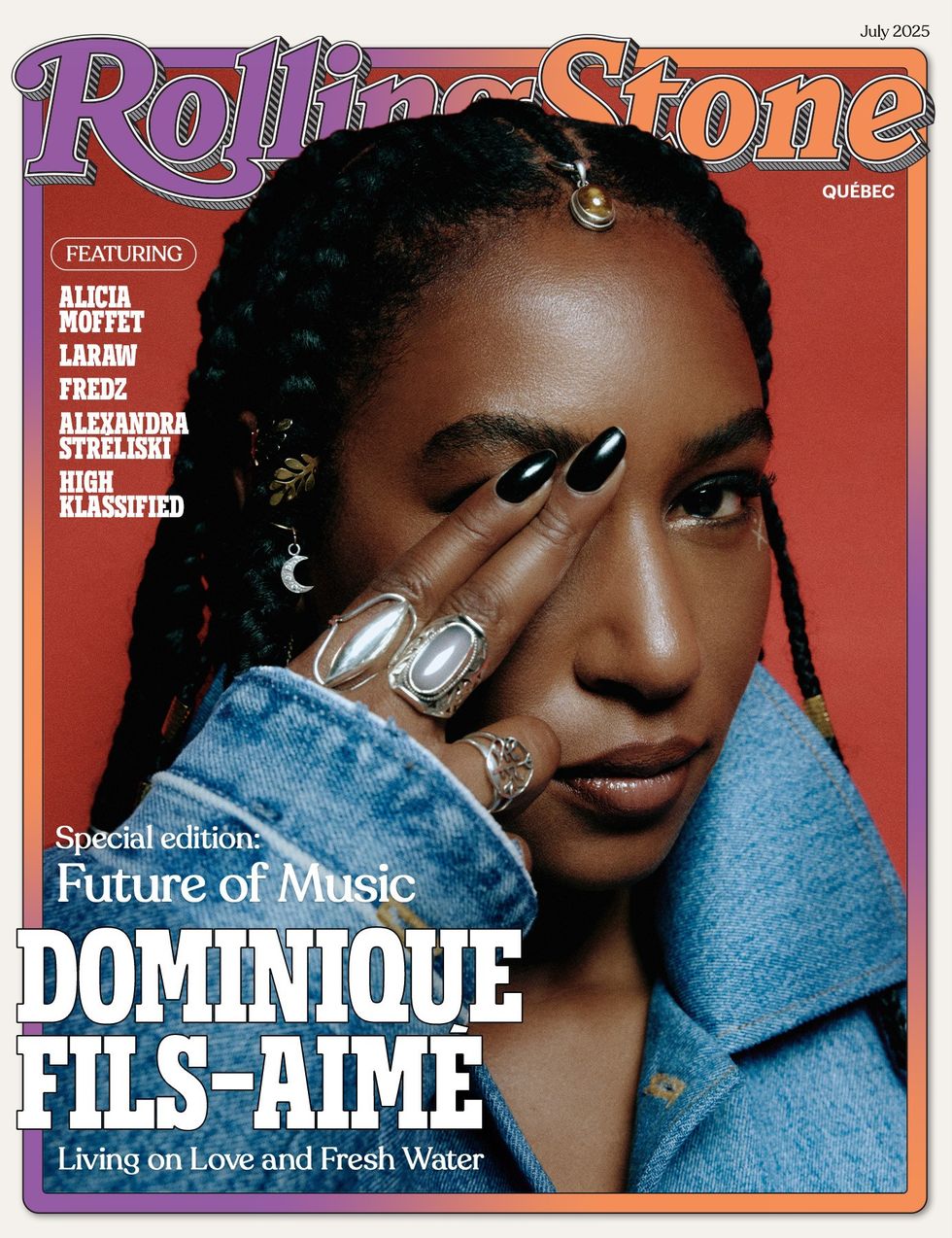 Jean Jacket: Repull/Jewelry: Personal collection
Jean Jacket: Repull/Jewelry: Personal collection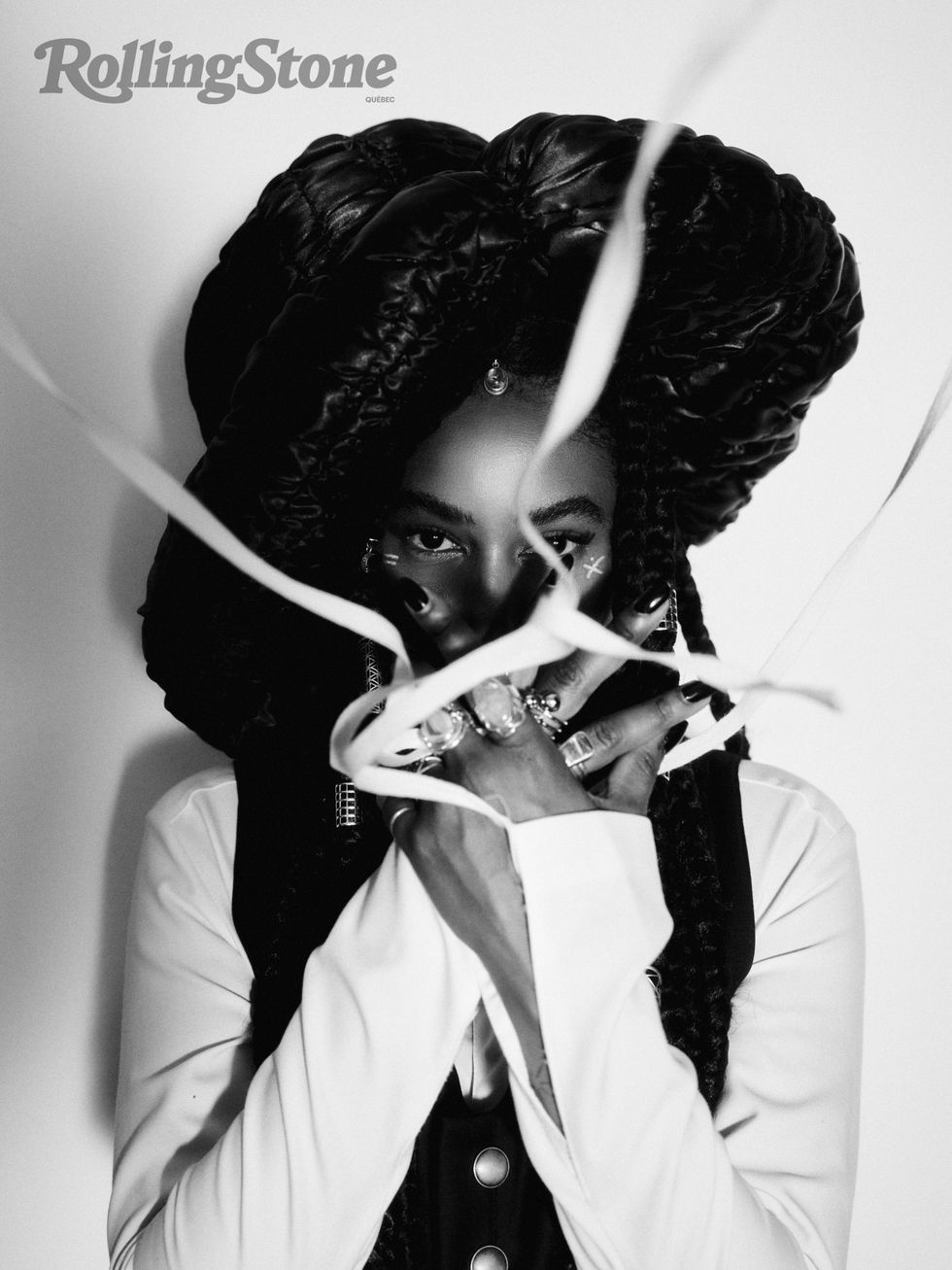 Hat: Xtinel/Dress shirt and vest: Raphael Viens/Jewelry: Personal Collection & So Stylé
Hat: Xtinel/Dress shirt and vest: Raphael Viens/Jewelry: Personal Collection & So Stylé 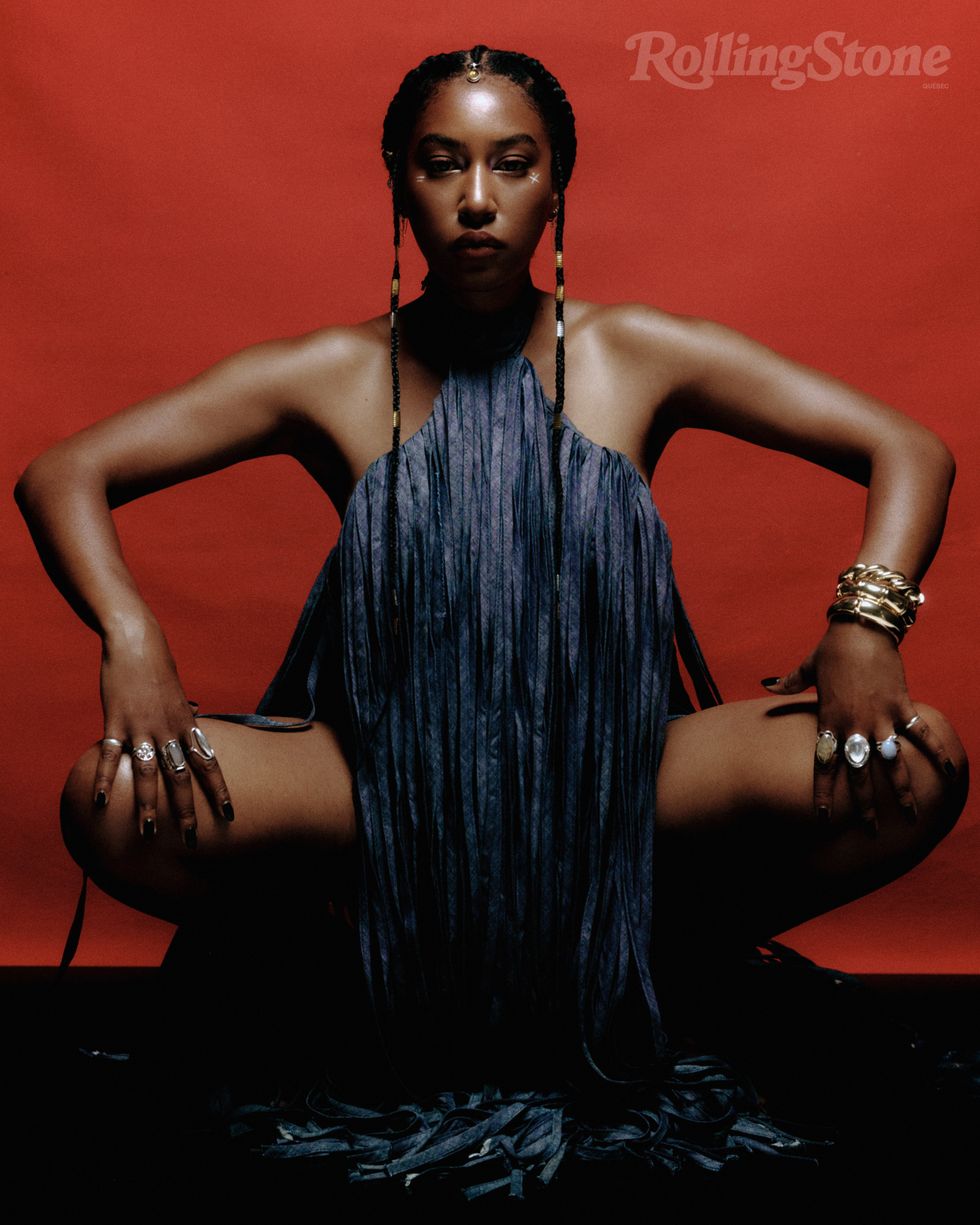 Dress: Helmer/Jewelry: Personal Collection
Dress: Helmer/Jewelry: Personal Collection 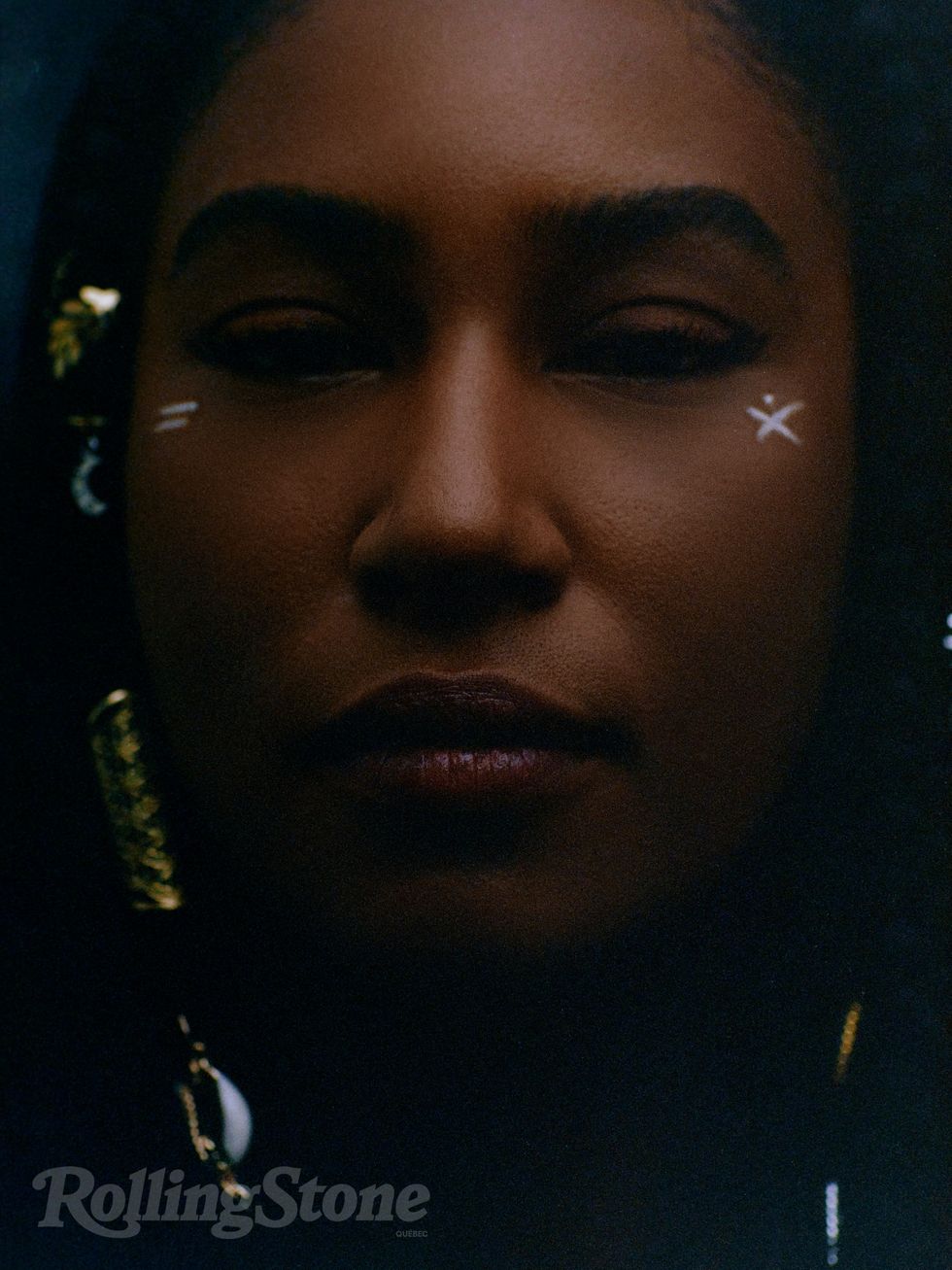 Jewelry: Personal Collection
Jewelry: Personal Collection 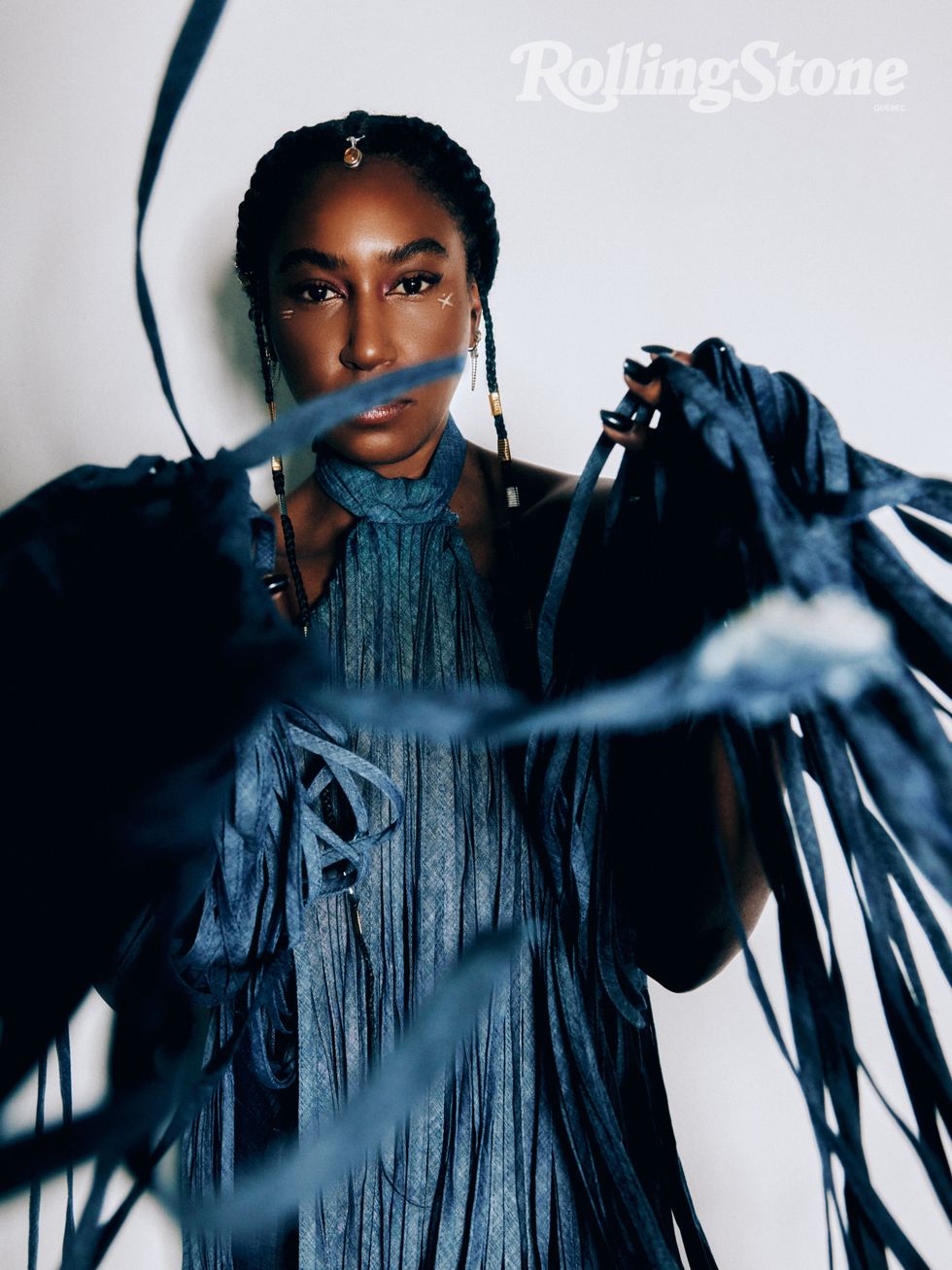 Dress: Helmer/Jewelry: Personal Collection
Dress: Helmer/Jewelry: Personal Collection 
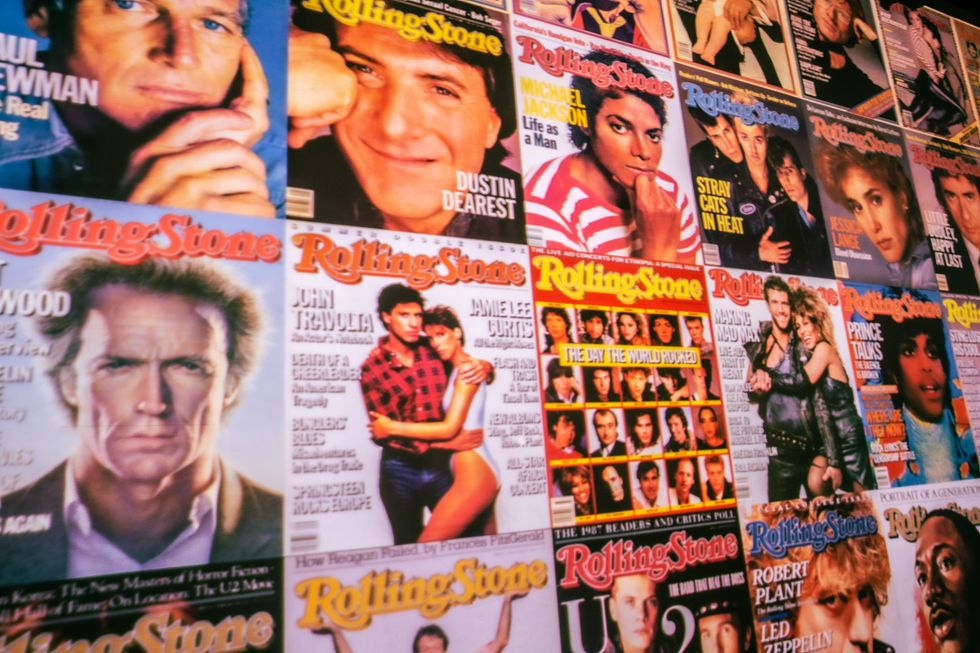
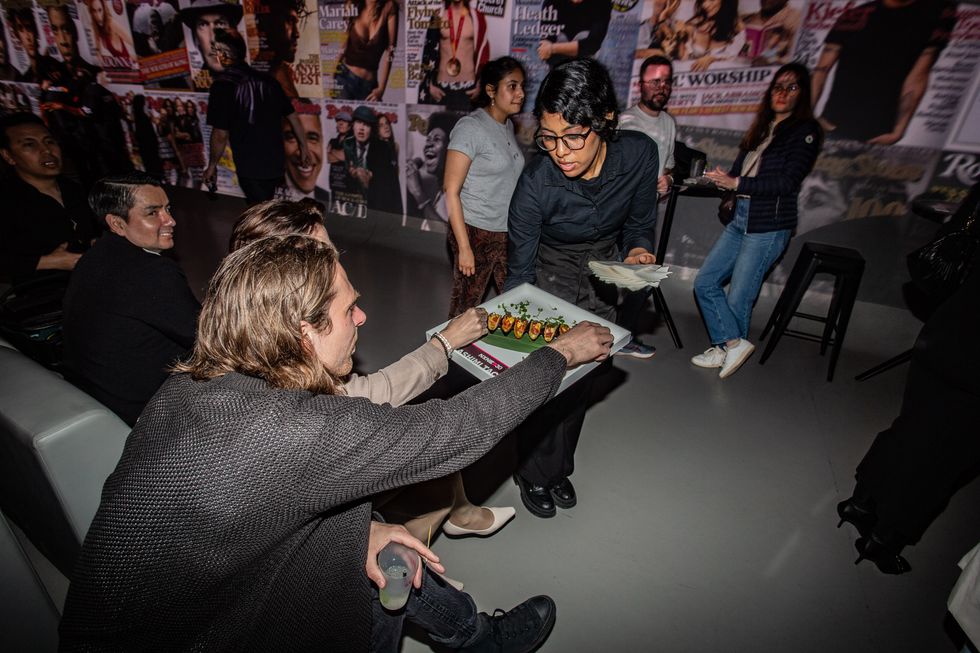 Catering Presented By The Food DudesPhoto by Snapdrg0n
Catering Presented By The Food DudesPhoto by Snapdrg0n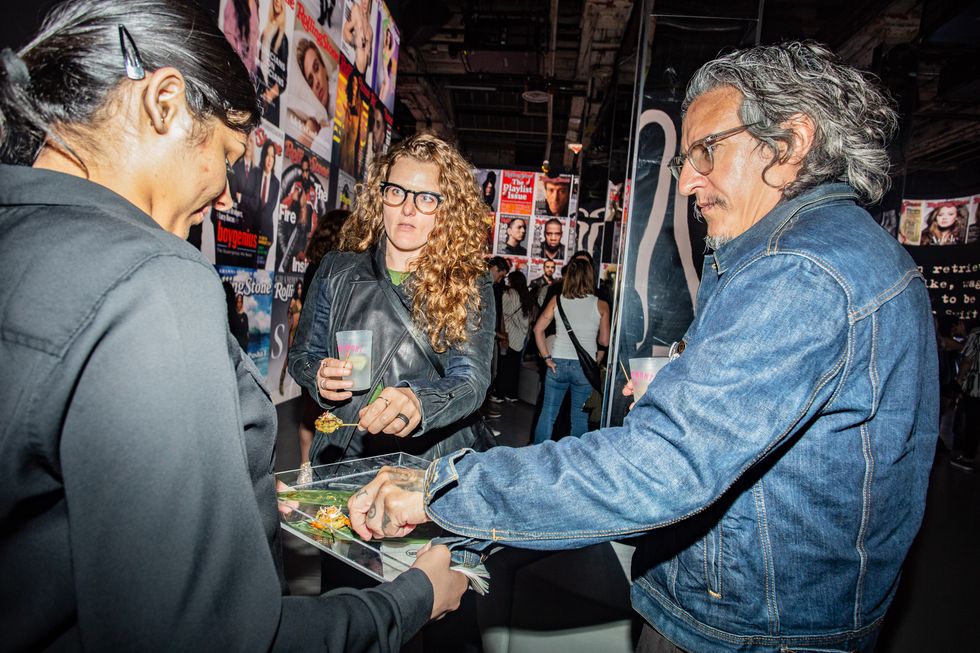 Catering Presented By The Food DudesPhoto by Snapdrg0n
Catering Presented By The Food DudesPhoto by Snapdrg0n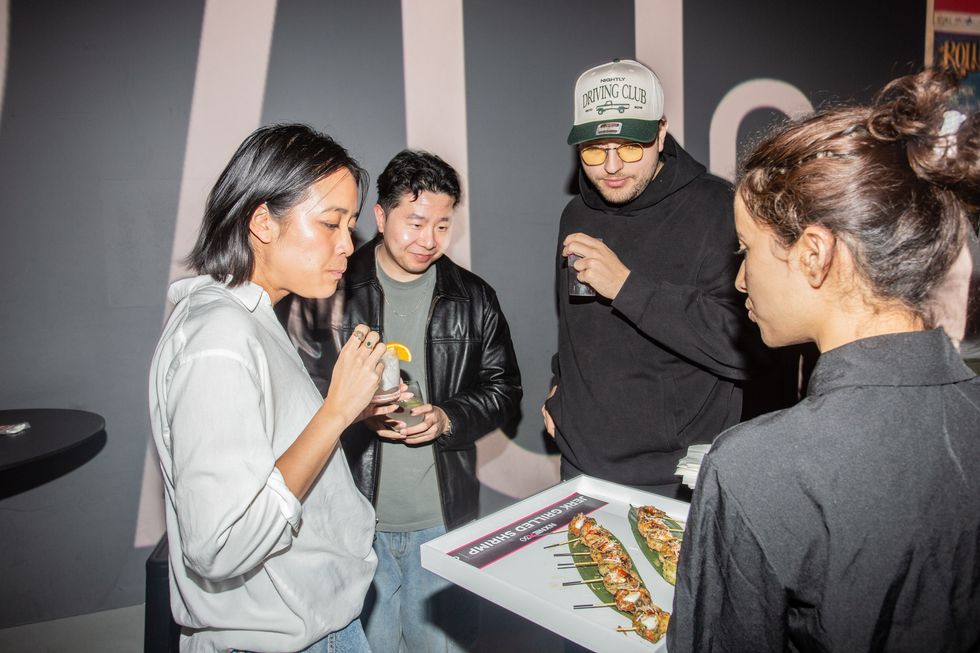 Catering Presented By The Food DudesPhoto by Snapdrg0n
Catering Presented By The Food DudesPhoto by Snapdrg0n
 Photographer: Raphaëlle Sohier / Executive production: Elizabeth Crisante & Amanda Dorenberg / Design: Alex Filipas / Post-production: Bryan Egan/ Headpiece: Tristan Réhel
Photographer: Raphaëlle Sohier / Executive production: Elizabeth Crisante & Amanda Dorenberg / Design: Alex Filipas / Post-production: Bryan Egan/ Headpiece: Tristan Réhel Photo: Raphaëlle Sohier
Photo: Raphaëlle Sohier Photo: Raphaëlle Sohier/ Photo production: Bryan Egan/ Blazer:
Photo: Raphaëlle Sohier/ Photo production: Bryan Egan/ Blazer:  Photo: Raphaëlle Sohier/ Blazer: Vivienne Westwood/ Skirt :
Photo: Raphaëlle Sohier/ Blazer: Vivienne Westwood/ Skirt : 
